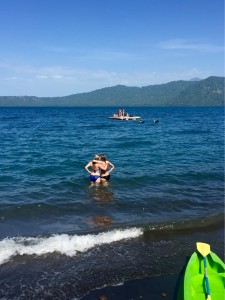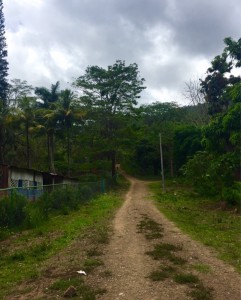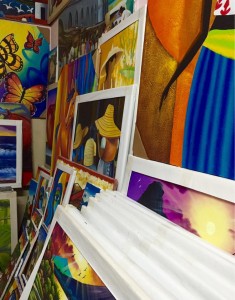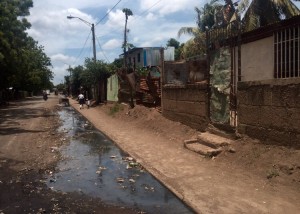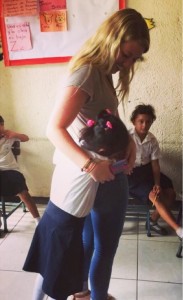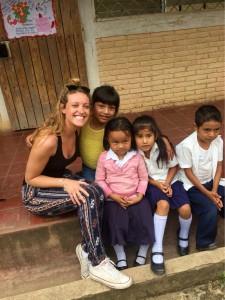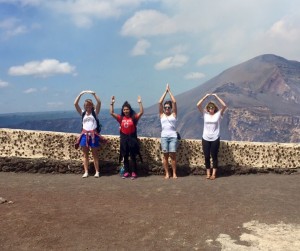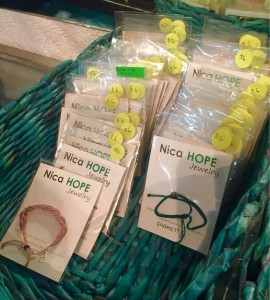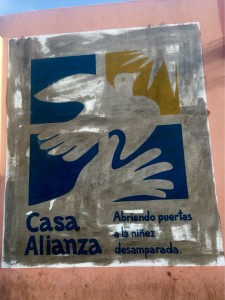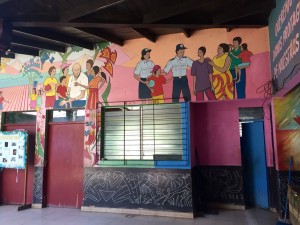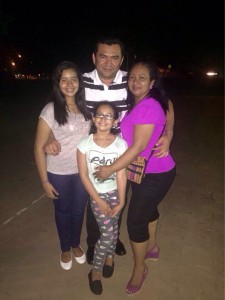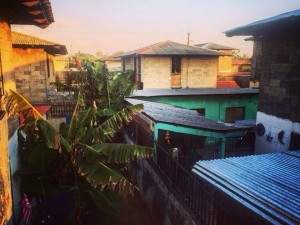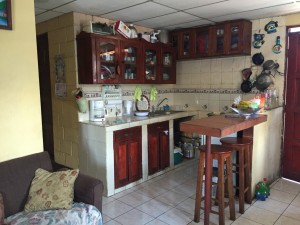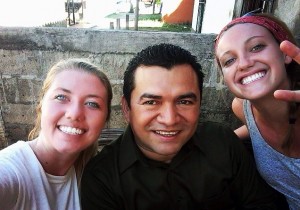Well, our trip to Nicaragua has come to an end. As we are sitting in the Houston airport waiting for our next flight to Columbus, all of us can’t help but relax and reflect on the past 2 weeks we have endured. Everyone on the trip is exhausted (and rightfully so). We had our final group session last night in Managua at the San Agustin Hostel, our home away from home during our time abroad. We found ourselves getting emotional, and despite that there was so much to reflect upon, it was difficult to find the words to describe everything we were feeling.
Our extraordinary tour guide, Cesar, posed the question, “what will you be leaving behind in Managua and what will you be taking back with you?” Perhaps, a simple question on the surface, it was so much more complicated than we realized. A reoccurring theme was leaving behind the notion that the “American way” is the right way. We came to a consensus after our home stay that we wished the families and citizens of Nicaragua should have/certainly deserved all of the luxuries we had in the United States (the luxuries we consider necessities and even take for granted on a regular basis… air conditioning, for example). But, we had to put ourselves in their shoes and understand that maybe that isn’t what they want. Just because Americans think certain things define happiness, does not mean that other people, countries, or cultures agree. We realized that simplicity in an individual’s lifestyle or culture goes an incredibly long way. With a focus on community, family support, hope, and commitment, almost anything can be accomplished.
As a group, we also discussed how each of us would try to make a conscious effort to be aware of the consumer we were exuding. For instance, instead of shopping at our typical stores or buying a Starbucks coffee everyday, we would intentionally purchase fair trade products in the U.S. We have seen the harm that can be present when a middle man is (or multiple middle men are) involved in the production of a specific product. Meeting and interacting with coffee farmers or jewelry makers has impacted our mentality of consumption greatly, as a $10 difference can go a long way for a family living in Nicaragua.
Each of us reflected on the idea that we left behind hope and encouragement to the organizations we had the honor of meeting. They gave us their time in order for us to become more aware of the struggles/efforts taking place in the community. We promised to advocate on behalf of their mission and to also keep a look out for the same social justice issues occurring in our own country. We discovered a new/altered perception of the United States through these meetings and interactions. Beginning with our first speaker, Mark Lester, many of us were not only learning new things about Nicaragua, but about the United States too. Unfortunately, the information that was being presented was not brag-worthy. A country as developed and economically sound as we are, we have so much work to do considering how many resources we have available to us. We left being aware of how much power and control the U.S. really has – whether that be through consumption, imports/exports, war, trade, etc. Foreign relations are crucial and should be a two-way relationship, but sadly that is not always the case.
While we made an effort to leave a lasting effect on the Nicaraguan people as American citizens, we also hope that we left an impact on them as college students from The Ohio State University. It was important for us to be attentive and show genuine interest in the topic being presented. All of us acknowledged how proud we were of the group’s efforts to stay involved and ask questions to learn as much as possible in our short time abroad. This eagerness to learn really showed as the speakers were so thankful for our travels and effort given.
A few of our personal answers included: continuously pushing ourselves out of our comfort zones (in anything we do in life, especially during a program or stay abroad), to immerse ourselves in every culture we encounter, and to make a conscious effort to enjoy the differences that a country has from our own. For example, in the U.S., it is very uncommon to have anyone selling their products to you during a meal or outside of a bus. However, in Nicaragua it was an everyday norm. At times we had to evaluate our patience, as it was easy to get frustrated or feel as though our space was being invaded. We frequently reminded ourselves that many of these individuals are getting their sole income from the money they received on the streets or as a result of selling items to tourists. A simple “no gracias” sufficed if we were not interested, because in our opinion, being rude was not the appropriate route to take in such a situation.
Another thing we were going to bring back with us was the abundance of support given to each other from coworkers, neighbors, family members, and other organizations. In order to be the most successful, people realized that they must have a strong network of support. Nicaraguan society puts an emphasis on utilizing collective efforts to be successful, versus the individualistic mentality that often describes Americans. We truly feel blessed to have been given the opportunity to have observed a country with so much love for one another (they even welcomed us foreigners with an overwhelming amount of gratitude)!
We will forever have a new perspective on poverty. As many of us have said, spending two short weeks here gave us a chance to put a face to a country that previously felt distant and unknown. It is difficult to understand the gravity of a situation or fully sympathize with the impoverished as there is no direct correlation for many people. Coming on this trip helped us humanize people in developing countries and make connections that will stay with us for many years to come. While we walked and greeted several communities who had so little, they had such big hearts. Not only were these families and individuals lacking economic wealth, they were also facing issues such as violence, labor disputes, or lack of government assistance. So on behalf of them, we hope to always be aware of the poverty around us and to take action whenever an opportunity presents itself.
As a group, we mentioned bringing back with us a newfound/stronger passions for human rights. The two of us talked about how there is a “high” or significantly strong feeling for a cause immediately after an experience like this. Since both of us have been on a trip centered around social issues before, we know the feeling that comes post-study abroad. However, we hope to continuously feel a tug on our hearts and heads in our daily lives when it comes to fighting for what every individual deserves.
This trip has offered each of us so much knowledge, as well as lasting friendships. Although it may be obvious, study abroad trips can be really tricky due to the dynamics of strangers working together. Our group had a significant amount of achievements and lasting memories that we will carry with us for the rest of our lives. We worked as a team, allowing our passions for human rights to lead us on an unforgettable journey.
In conclusion, we want to thank The Ohio State University and the organization of CGE for conducting such an impactful trip. Dr. Davis and Professor Beth Ann were remarkable additions to this student program, as they offered unique perspectives and encouraged the independence of each student (but also a motherly hand when it was sought for). We will forever be grateful for the above and beyond efforts that were put in to making this experience such a success!
Lauren Jesch: Political Science, Nonprofit Management, and Middle East Studies Student going in to my third year!
Abby Wocher: Third Year Student in the John Glenn School, majoring in Nonprofit Management with a minor in Leadership Studies… and also now considering a Masters in Social Work :~)
There is a special place in our hearts now and forever for the men, women and children of Nicaragua.
“Mucho gusto Nica, y adios por ahora”
